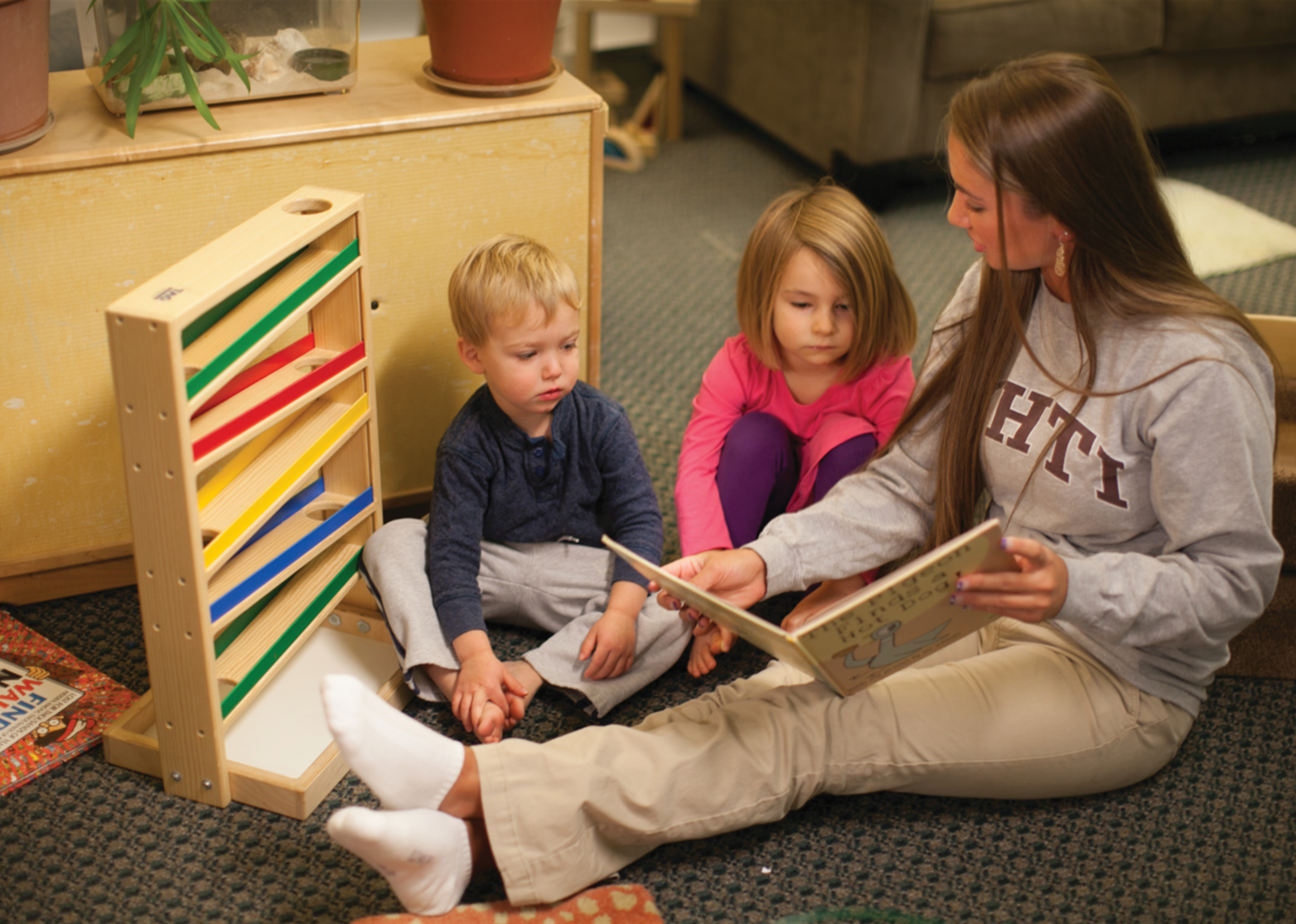NHTI's Early Childhood Education degree program prepares you to be an active researcher of children and how they learn. You'll learn to support families as each child’s first educator, make connections between theory and practice, and discover why this profession is the “backbone” of our workforce. You'll be involved in immediate, hands-on training and provided opportunities to work beside highly trained early childhood teachers, practice the skills you learn, and complete assignments directly related to your studies.
This program is available 100% online.
Do you have questions? Contact Shaunna Babcock, program coordinator, at sbabcock@ccsnh.edu. The department chair for this program is Diana Menard, who can be reached at dmenard@ccsnh.edu or 603-271-6484 x4281.
Apply for this program today on our Admissions page with step-by-step instructions and enrollment pathways build just for you!
Scholarship Program
CCSNH provides ECE Tuition Assistance to offset educational expenses as students’ complete certificates or degrees. Contact Diana Menard, department chair of Child and Family Studies, at 603-271-6484 x4281 or dmenard@ccsnh.edu for more information. You can also visit the CCSNH page on early childhood education tuition assistance here.
There is also a scholarship available for this program through TEACH NH (click here for flyer). The TEACH NH Scholarship Program supports the cost of tuition and books, offers paid release time from work for scholarship recipients, and has a bonus upon completing 9-12 credits within a 12-month period. To be eligible, applicants must live in N.H. and work at least 30 hours a week in a licensed childcare program.
Graduates are prepared for immediate entry into the field of early childhood education as teachers in N.H.-licensed or NAEYC-accredited child care centers, Head Start or Early Head Start programs, family child care, and elementary schools as para-educators. Graduates may further their education at a four-year college for pre-K–grade 3 teacher certification or in other areas of the early childhood field. This degree meets the training and education requirements for the State of N.H. Early Childhood Professional Development System credential of NH Early Childhood Educator II.
First Year
Students whose placement test scores suggest difficulty with lengthy and complex assignments are strongly advised to complete the program in 3 or more years.
Fall Semester
Spring Semester
Second Year
Fall Semester
Spring Semester
This program offers a sequence of stackable certificates. The entry-level certificate enables students to enter the early childhood profession in as few as three courses with the opportunity to build on their knowledge and skills and advance their career while building credits toward the associate degree.
All early childhood courses, except ECE 290C, require a weekly child care lab component where students actively engage with young children to make connections between theory and practice, carry out class assignments, and learn through observation and active play. Students taking concurrent courses can use the same lab time for all courses. Students completing practicum may use their practicum site as their lab hours for other courses taken concurrent with practicum.
Accreditation
The Associate of Science degree in Early Childhood Education is accredited by the NAEYC Commission on the Accreditation of Early Childhood Higher Education Programs , www.naeyc.org. The accreditation term runs from July 2019 through September 2026.
Mission Statement
The Early Childhood Education program is hands-on, project-centered, competency-based and evidence-informed to facilitate the growth of advocates and leaders who are advancing their work with children, youth, families, and communities.
Program-Specific Requirements
- Students will spend designated hours each week with infants, toddlers, preschoolers, or kindergarteners while taking early childhood courses. These hours will be considered a component of class participation.
- Upon acceptance into the program, students must complete the following paperwork:
- Submission of a criminal record check that comes back clear or non-disqualifying; the cost associated with the criminal record check is the responsibility of the student.
- Signed confidentiality form
- Other related documents distributed by the department chair
- Out-of-state students who are taking classes 100% online will need to complete their state’s fingerprinting and background check, child health care form, and any other paperwork required by that state.
- Students must have transportation to and from NHTI approved practicum sites in their senior year.
- Students must have a flexible schedule that allows them to spend weekday mornings and/or afternoons at their practicum site while taking classes. Students should be prepared to plan work hours around their course schedule knowing that these hours will change each semester.
- All students must have access to a digital camera and video-capturing device to complete assignments. Online students will record themselves during practicum to share with their practicum teachers online.
Program Learning Outcomes
Graduates are able to:
- Understand young children’s characteristics and needs to create environments that are healthy, respectful, supportive, and challenging for each child.
- Demonstrate that they know about, understand, and value the importance of creating respectful, reciprocal relationships to support and empower families in their communities.
- Responsibly observe, document, and assess children in a manner that supports young children and families.
- Understand developmentally effective approaches which emphasize positive relationships and supportive interactions to influence outcomes for individual children.
- Design, implement, and evaluate learning experiences that promote a wide range of academic disciplines to build meaningful curriculum.
- Identify and connect themselves as members of the early childhood profession.
- Demonstrate a variety of early childhood field experiences.


